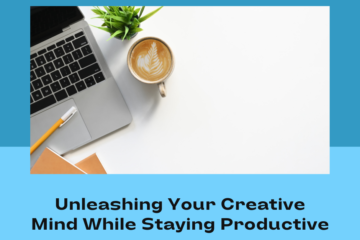Introduction:

Too often in life, we find ourselves trapped in the familiar embrace of our comfort zones, tethered to routines that seldom challenge us. This static state, while comforting, often prevents us from realizing our true potential, leaving us wondering if there’s more to life than the familiar patterns we’ve grown accustomed to. Yet, what if there was a way to break free from this loop? In my upcoming blog post, ‘Stepping Out of My Comfort Zone: My Quest for Doing Things Differently’, I’ll delve into the transformative journey of seeking new experiences and the remarkable growth that lies just beyond the boundaries of our everyday lives.
The Allure of the Comfort Zone
The “comfort zone” is like the cozy corner of our homes where we feel safe, comfortable, and unthreatened. In a wider sense, our comfort zone is the mental space where our behaviors and activities fit into a pattern and routine that keeps stress and risk to a minimum. It’s a place where our actions and the world around us are expected, so we don’t feel as much danger there.
Why It’s Tempting
This zone is appealing because people naturally want to feel safe and avoid pain. From an evolutionary point of view, our ancestors lived because they knew and stuck to familiar places and ways of doing things, which often kept them safe. Uncertainty often meant danger, so staying on known roads and doing the same things became a way to stay safe.
Psychological Attachment to the Familiar
In the modern world, most of the dangers our ancestors faced have gone away, but our brains are still wired to look for comfort and safety. Neurologically speaking, it takes less brain power to think about things we’ve done before. This is because our brains recognize patterns and don’t have to work as hard to figure out what new knowledge means. This speed makes me feel better and makes my life easier. Also, routines give us a sense of control and order in a world that often feels chaotic and uncertain.
The Downside of Overstaying
But sticking in our comfort zones for too long can be bad, just like too much of anything else.
Missed Opportunities:
When we stick to what we know, we often miss out on new experiences, connections, and lessons that could make our lives better. We might miss out on chances to learn, grow, or even find new hobbies and passions.
Stagnation in Personal Growth:
To grow as people, we often have to face challenges, adjust to new situations, and get past problems. By not taking these chances, we stay in the same place and never really test or push our boundaries.
Reduced Resilience:
Over time, relying too much on familiar places and habits can make us less able to handle changes that come out of the blue. When problems do come up, which they always do, we might not be ready to deal with them.
In conclusion, the comfort zone is important because it gives us a sense of security and stability. However, it’s important to know when it’s time to step out, push our limits, and welcome the unknown.
My Personal Journey
Change is a natural part of being human, but it often needs a push. For me, that turning point wasn’t a single moment or feeling, but a collection of them. I was getting tired of how the same things happened every day and how little changed from one week to the next. Deep inside, there was a gnawing feeling that told of a life not yet fully lived and of events not yet tasted.
Motivations for Change
I had always thought that life was meant to be a rich tapestry of events, not just a straight line that you kept walking down. I wanted to change because I wanted to grow, learn, and feel truly alive. I longed for stories I could tell with pride and passion one day, stories of adventures and mishaps, of lessons learned and horizons widened.
The Turning Point
The turning point happened out of the blue. It happened while I was doing something boring that I had done a thousand times before. I was looking through old photo books and saw a picture of myself when I was younger. My eyes were bright and full of wonder. The difference between that younger me and me now is very clear. I realized that I had been inactive for too long, letting my fear of the unknown get in the way of how exciting it is to learn something new.
Challenges and Feelings
It wasn’t easy for me to decide to leave my safety zone. At first, fear was the main feeling. The fear of failing, of being judged, and of being sorry. But along with that fear was a low-level thrill, a sense of looking forward to what was to come. There were, of course, problems. I had to fight against self-doubt, get around in places I didn’t know, and sometimes deal with the results of the decisions I made. But each struggle, no matter how hard it seemed at the time, turned out to be a stepping stone that helped me move forward on my journey.

Benefits of Breaking Free
Getting out of your comfort zone and into the huge unknown may seem scary at first, but the rewards are much greater than the initial fears and difficulties. As someone who took a chance, I can say that pushing limits can change things for the better.
Personal Growth Experienced
Self-Discovery:
Getting away from what I knew helped me see who I really was. I faced both my strengths and my weaknesses, which taught me more about who I am and what I want than years of self-reflection ever could.
Resilience:
Each challenge I faced and overcame made me more determined and taught me how to get back up, change, and find answers when none seemed obvious.
Self-Esteem:
Achieving goals and solving problems in places they didn’t know well gave them more confidence. When I realized that I could not only live but also do well outside of my comfort zone, it gave me a lot of confidence.
New Opportunities, Relationships, and Perspectives

Expanded Horizons:
Getting out of your comfort zone opened up new job paths, hobbies, and adventures that seemed impossible or unthinkable before. My life became more interesting and full because of these chances.
Valuable Relationships:
When I interacted with different groups of people outside of my normal circle, I made both professional and personal connections that have made my life so much better. These relationships gave us different ways to look at the world.
Expanded Worldview:
Being exposed to different countries, beliefs, and ways of life helped me understand and accept more people. It made me more empathetic and helped me understand the complex web of human experiences.
Unexpected Positive Outcomes
Creativity grew:
One surprise result was a clear increase in creativity. When people faced new situations, they came up with new ideas, solutions, and ways to say things.
Greater Appreciation for the Familiar:
Oddly enough, getting out of my comfort zone made me appreciate it more. The rare chance to go back to what I knew became a welcome break that I began to value more and more.
Unexpected Paths:
Some choices that seemed small at the time led to big and unexpected changes in people’s lives. For example, deciding to go to a workshop could lead to finding an interest or meeting someone who will play a big role in your life.
In hindsight, getting out of your comfort zone isn’t just about wanting to try new things. It’s a journey of self-evolution, where one’s very being gets better and more refined. There will always be a draw to what is known, but the gifts that can be found in the unknown parts of life are truly priceless.

How to Get Out of Your Comfort Zone
It can be scary to push past the unseen limits of your comfort zone. But from my trip, I’ve learned a few tips and tricks that might make the process easier for others who want to see more of the world.
Strategies and Advice Based on Experience:
Start small:
You don’t have to change everything at once. Small changes to your habits, like trying a new hobby, taking a different route to work, or trying new foods, can be the first steps toward breaking out of the mold.
Challenge Your Beliefs:
Our comfort zones are often made up of more than just habits. They can also be made up of deeply held beliefs. Think about them, ask yourself if they are still true, and be ready to update or change them when the evidence says so.
Set clear goals:
Having a clear goal or idea gives you a path to follow. Setting clear goals will give you something to work towards, whether it’s learning a new skill or pushing yourself to network more.
Getting People to Take Small Steps:
Celebrate the Little Things:
Every step, no matter how small, is a move forward. Recognizing and celebrating these small wins can help you gain confidence and give you the drive to keep going.
Don’t be afraid of failing:
Not everything you try when you step out of your comfort zone will work out, and that’s okay. Think of mistakes as opportunities to learn, not as losses.
The Power of Mindset, Support, and Openness:
Develop a growth mindset:
Believe that your skills and intelligence can be improved through hard work and commitment. It can change your life if you see problems not as threats but as chances to grow.
Lean on Your Support System:
Telling your trusted friends or family members about your goals and fears can both encourage you and give you a safety net. They can give help, talk about what they’ve learned, or just listen.
Be open to new things:
Develop a feeling of wonder. Try new things with an open heart and mind, without making any assumptions. This not only makes the experience better, but also makes sure that you learn as much as possible from it.
In short, getting out of your comfort zone is less about making big changes and more about making small changes and growing over time. The journey might be hard, but if you have the right attitude, a strong support system, and a real willingness to try new things, it’s a journey that’s well worth taking. And remember that most great stories and accomplishments started with one brave step into the unknown.
Overcoming Common Fears and Obstacles
When you start a new journey or experience, you will always have to face fears and problems. For growth and success, it is important to understand these fears and come up with ways to deal with them.
Common Fears Addressed:
Fear of Failure:
The fear of failing may be the most common fear. The fear of failing, of not living up to one’s own or other people’s standards, can stop a person in their tracks. But it’s important to keep in mind that loss is often just a step on the way to success. Every failure teaches us something and gives us a chance to improve and try again with more knowledge.
Fear of Judgment:
We are social beings, and our fear of rejection or misinterpretation by our friends, family, or society as a whole can prevent us from taking action. But it’s important to know that people’s judgments are often based on their own insecurities or views, not on what you’re really worth or how good you are.
Solutions to Overcome These Fears
Change Your View of Failure:
Instead of seeing failure as a bad thing, look at it as a chance to learn. Adopting a growth attitude, in which problems are seen as opportunities to learn and grow, can make a big difference.
Seek Constructive Feedback:
Instead of being afraid of what others will think, actively look for feedback. Constructive advice can help you figure out how to improve, while positive feedback can make you feel better about yourself.
Visualization:
Think about what it would be like to achieve it. Visualizing good results can make you feel better and give you more confidence. If you can see it clearly in your mind, you’re one step closer to making it happen.
Educate Yourself:
Sometimes, fear comes from not knowing what to expect. By learning about what you’re trying, whether it’s a new job, skill, or experience, you can lessen the unknowns and fears that come with it.
Resilience and Adaptability:
Building Resilience:
Life isn’t always what you expect it to be, and failures are a part of it. It’s important to develop fortitude, which is the ability to get back up after something bad happens. This can be built up by remembering what you’ve done well in the past, keeping in touch with people who care about you, and taking care of yourself when things are hard.
Embrace Adaptability:
Embrace the ability to change. In a world that is always changing, the ability to change is very important. Every new situation gives you a chance to learn something new and grow. By being open to change and seeing it as a friend instead of an enemy, you can deal with problems more effectively.
In conclusion, getting out of your comfort zone means facing fears and problems. But with the right plans and attitude, they can be turned from scary roadblocks into opportunities for growth and success. Remember that the real growth happens on the way to the goal, and facing and getting over these fears is a big part of that.
Conclusion:
Even though it was hard, getting out of my comfort zone was one of the most important things I’ve done in my life. Every step, jump, and even fall has added a new layer to my personality and taught me things about the world and myself that I wouldn’t have known otherwise. It’s made my life story more complex and full of stories of courage, resilience, and finding.
I’m extending an invitation to you, the reader: Get out of your comfort zone and start your own journey. Remember that you don’t have to make huge changes all at once. Even small steps can lead to big changes. As the saying goes, “The journey of a thousand miles begins with a single step.”
I’ll leave you with a thought that has helped me a lot when I was having doubts: “Do not be afraid of growing slowly; be afraid only of standing still.”
Now it’s your turn. When was the last time you tried something new? How did it make you feel? Did it make you feel excited, scared, or both? I’m really interested in hearing about your lives, the problems you’ve had to deal with, and the successes you’ve had.
Share what you’ve learned in the comments. No matter how big or small your trip is, it can help someone else take their first step. Let’s build a group where we encourage each other to grow and try new things. I can’t wait to hear your stories of being brave, going into the unknown, and coming out stronger.



0 Comments